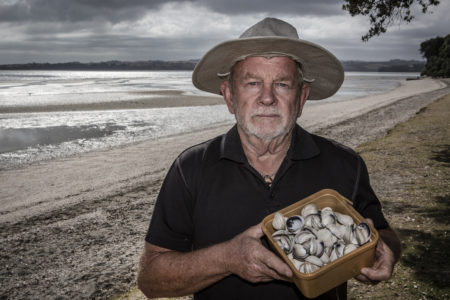
Action is finally being considered to address the rapidly dwindling shellfish population at a popular east Auckland beach.
Cockle Bay Beach has been included seven times in the northern intertidal shellfish monitoring survey starting with the 2009-2010 fishing year.
The most recent survey, in 2019-2020, indicates a major drop in the abundance and density of its large cockles from a peak of 36.46 million in 2012 to 11.75 million in 2019.
The number of large cockles at the beach is at its lowest level since the first survey in 2009-2010.
Large cockles were 72 per cent of the population in 2015-2016 but only 26 per cent in 2019-2020.
In an effort to reverse the downward trend, Fisheries NZ recently called for public submissions on two options it’s considering to restore the beach’s shellfish.
The first option is to make no changes to the existing management regime for the beach’s intertidal shellfish.
Option two is to revoke the existing seasonal closure and replace it with a full, year-round ban.
The beach is subject to a seasonal restriction that allows people to harvest up to 50 cockles per day between May 1 and September 30, but there’s no limit to how many people can collect there each day.
Barry Wood has lived at Cockle Bay Beach for more than 30 years and he’s long been concerned about the problem.
He made a submission to Fisheries NZ and says he supports a blanket ban on shellfish harvesting there for three years.
“During that time we should continue with monitoring,” Wood told the Times.
“I wouldn’t mind if after that time the beach was closed completely, forever.
“It’s a drastic move but the problem is it’s far too accessible to a large population and if they did open it, it would have to be with further restrictions.
“They would have to either shorten the opening period or reduce the number of cockles that can be taken.”
Wood says some people take 50 cockles from the beach, put them in their vehicle, and then go back out and get another 50.
“We have people coming [to the beach] from Albany, Karaka, and Blockhouse Bay.
“Almost every low tide during open season there are 50 to 70 people here and most of them come by public transport.
“I can see the same people come here at least four or five times a week.”
A recent Fisheries NZ discussion paper says the agency proposes revoking the seasonal closure and implementing a full, year-round ban on recreational harvesting of all intertidal shellfish at Cockle Bay Beach.
The agency would review the closure after three years.
The beach is already closed to the commercial harvest of shellfish year-round.
The discussion paper points to a recent decline in the number and density of large cockles and a decrease in the shell length of the beach’s surveyed population.
“Large cockles are disproportionately targeted by harvesters,” it says.
A Ministry of Primary Industries spokesperson says: “Once we have received all of the submissions, Fisheries NZ will analyse feedback on the proposals to provide final recommendations to the Minister for Oceans and Fisheries.
“The minister’s decision will be announced in due course prior to implementation of any changes which come into effect on April 1, 2021.”









